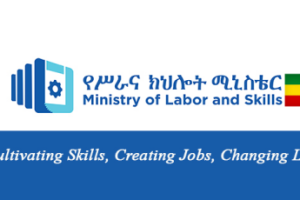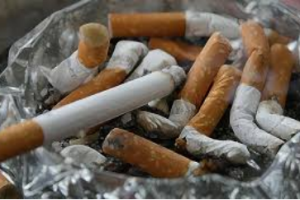
BY EPHREM ANDARGACHEW
Prior to the onset of the reform government, instability was common in some parts of Ethiopia. East Hararghe zone was one area where recurrent conflict has occurred between Oromia and Somalia’s Pastoralists and agro-pastoralists due to the border and natural resources (grazing lands and water) issues. The impacts of drought and land degradation were also a reason for the community to displace from the area they lived in.
The intensity of resource scarcity coupled with the conflict became a cause for Internally Displaced Persons (IDPs). Internal Displacement Monitoring Center (IDMC), defines IDPs as persons or groups of persons who have been forced to leave their homes or places of habitual residence, in particular as a result of or to avoid the effects of conflict, violations of human rights, or natural or human-made disasters, and who have not crossed an internationally recognized border.
The displaced persons were forced to flee their homes without any warning and escaped without having their assets that help them to save their lives. Because the IDPs are displaced and detached from their assets, livelihoods, and networks, they may not easily earn a living. As a result, most of the IDPs remain in insecure and uncertain conditions and fully need the support of the government, international humanitarian assistance, and the host community which themselves are oftentimes vulnerable.
People forced to leave their homes, particularly in situations of armed conflict, are generally subject to heightened vulnerability in several areas. IDPs suffer significantly higher rates of mortality than the general population. Their agriculture activities are also highly affected by the conflict which is true in Ethiopia.
Chinaksen Woreda, found in the East Hararghe Zone of Oromia State, was a case in point in this regard. The area was exposed to several casualties and physical injuries, burning of living houses, and damages to basic services like health facilities, schools, and water schemes during the conflict before the occurrence of post-2018 political reform in Ethiopia. Though the majority of the IDPs across the border have returned, rehabilitating them permanently was a daunting task.
Cognizant of these realities into account, Haramaya University in collaboration with the International Committee of the Red Cross (ICRC) has designed a project with the aim of benefiting them through leading a sedentary, settled, and sustainable life.
Kamal Kassim, Haramaya University lecturer, and Project Coordinator, Seed Multiplication Project at Chinaksen woreda told The Ethiopian Herald that, the farmers who live around the border areas have been displaced from their permanent place of abode due to the conflict and forced to do menial jobs going far away from homes to earn their daily wages.
Some of the IDPs went to distant places and lived with their relatives while others led subsistence life elsewhere. They were also engaged in the business of selling charcoal by cutting and burning trees. Apart from the security problem, the lack of rain in the area made life arduous for the communities. Hence, the University in collaboration with ICRC has conducted community-based and problem-solving research with the aim of changing the livelihoods of the Chinaksen Woreda farming community.
Hence, the support of the University and ICRC has made significant contributions to the modernization and commercialization of farming activities in the woreda. For instance, in the 2020/21 and 2021/2022 farming seasons, the University has provided over 130 quintals of wheat and 15 quintals of improved seeds for nine farmer’s cooperatives. The improved seeds (disease and drought-resistant crops) are suitable to grow in various agro-ecological zones.
Hence, the farmers, along with their consumption, have earned 4.2 million birr by producing 1077 quintals of wheat and selling it in the market. The seed producer’s cooperatives also bought a new brand tractor. Looking at last year’s Ethiopian yield results, the farmers also planted wheat over 201 hectares by the end of this crop season. Due to the adaptation and distribution of improved seeds to farmers that are organized in cluster bases, they managed to produce high amount-yield crops. Especially, in the past three years, the farmers are producing crops including wheat and corn in huge amounts with the help of University researchers and the experience is replicating in other areas.
According to Kamal, “We train the farmers and encourage them to plant wheat and other crops aside from linking them with buyers. Moreover, the University has also provided every technical and technological support for them.”
Before the government launched the summer wheat development initiative, the University, through research, has been working with the farmers to produce improved seeds in the area to change the existing dependence of the country on rain-fed production of cereals. As stated by Kamal, the government’s initiative helps the university to intensify the wheat production initiative in the Chinaksen Woreda.
Besides, the plan of optimizing wheat production during the summer season, the University helps them to do local improved seeds business. The woreda farmer’s cooperative associations have been producing certified improved seeds and selling to the farmers who need what they produce. Therefore, the project helps the farmers to manage and improve their livelihoods,” he said, adding that it also helps them to lead settled lives. They now purchased tractors in order to apply mechanized farming systems, Kamal explained.
The farmers who benefit from the project comment that three years ago they could not lead a stable life due to conflict, and recurrent droughts occurred in the specified area. Nevertheless, they are currently performing better agricultural activities thanks to the support given to them by the University and ICRC.
Farmer Amina Beker said that there were times when she planted 50 quintals but she got 17 quintals due to the limited agricultural knowledge. However, in the last three years, She got skill and knowledge, experience, and support from Haramaya University that enabled her to improve production and productivity.
Farmer Abdulfetah Dawud in his part noted that, despite the huge and suitable agricultural land in the Woreda, the farmers could not till the land due to their limited knowledge and recurrent conflicts. Nonetheless, at present, with the support of the university and ICRC, they are not only producing the improved seeds for themselves but also giving farmers in the surrounding area to produce and sell them.
In fact, every Higher Institution has been given the mandate to perform its social corporate responsibility for the benefit of the community who live surrounding them. The initiative and collaboration between Haramaya University and ICRC are appreciable and need the furthest strength. Especially, the support in pre, during, and post-harvest season should be continued and expanded since it is imperative to their farming activities and benefit others, Farmer Amina and Abdulfetah suggested.
THE ETHIOPIAN HERALD TUESDAY 4 OCTOBER 2022





